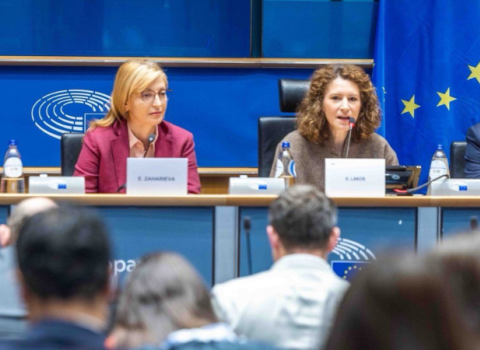An international contest to host a €1.5 billion radio telescope moved a step closer to conclusion, with the announcement of a formal procedure by the project partners to pick the winner early next year.
The Square Kilometre Array (SKA) would be the world’s largest radio telescope, and is an international project for which South Africa and Australia have emerged as the competing sites. Besides the immediate value of the construction and operations, to the winner would also go a range of educational and economic spin-offs.
South Africa has constructed a coalition with other African nations to win the project as a major international investment in the future of the subcontinent, and Australia has assembled its own regional consortium drawing on its strong reputation in astronomical sciences. The decision will ultimately be made by the countries funding it, which includes the European Union, Canada, the competing consortia and, probably, the US.
At a conference in Canada, the project’s board announced a timetable and procedure for making the decision.
Evaluation
The technical assessment and evaluation phase of the site selection process is being overseen by the SKA Siting Group (SSG), which reports to the SKA Founding Board. The first step in this phase is information gathering where the candidate sites will make submissions covering:
- Science and technical factors
- Other factors, including legal, customs and security
- Plans and costs of implementing infrastructure, including power supply and distribution
The SKA Site Advisory Committee (SSAC) of appointed independent experts will make a recommendation on the preferred site based on reports from expert panels and consultants together with the submissions from the candidate sites. The SKA Board of Directors is expected to make the final site decision in early 2012.
Professor Richard Schilizzi, Director of the SKA, said: “Selection of the host site for the SKA will be made in terms of characteristics for the best science as well as the capability and cost of supporting a very large infrastructure, taking the political and working environment into account.”
Selection factors that will be considered in the decision making process will include levels of radio frequency interference, the long term sustainability of a radio quiet zone, the physical characteristics of the site, data network connectivity across the vast distances covered by the telescope as well as operating and infrastructure costs.
The site selection timeline and process
March – September 2011
The candidate sites submit information to the SKA head office (SPDO) in Manchester.
July – November 2011
The submitted information is analysed by independent consultants, expert panels and the SPDO.
November – December 2011
The SKA Site Advisory Committee (SSAC), an external body of independent experts, evaluates the findings of the analysis and recommends a preferred site.
January – February 2012
The SKA Board of Directors receives the final report and recommendation.
February 2012
The SKA Board of Directors makes the site decision.
Working towards the establishment of a legal entity, progress is also being made in SKA project governance. Professor John Womersley, chair of the SKA Founding Board, said: “Major developments are underway in all aspects of the project - in particular we are working to establish a robust legal structure for the SKA and we expect to welcome further organisations to the international SKA partnership in the near future.”
In April 2011 nine national governmental and research organisations signed a Letter of Intent in Rome. The organisations from Australia, China, France, Germany, Italy, the Netherlands, New Zealand, South Africa, and the UK declared their common ambition to see the SKA built, and agreed to work together to secure funding for the next phase of the SKA project.
The SKA Forum brings together scientists, industrialists, policy makers and representatives of government departments and funding agencies who join forces to advance the multi-faceted implementation plan for the SKA.





 A unique international forum for public research organisations and companies to connect their external engagement with strategic interests around their R&D system.
A unique international forum for public research organisations and companies to connect their external engagement with strategic interests around their R&D system.